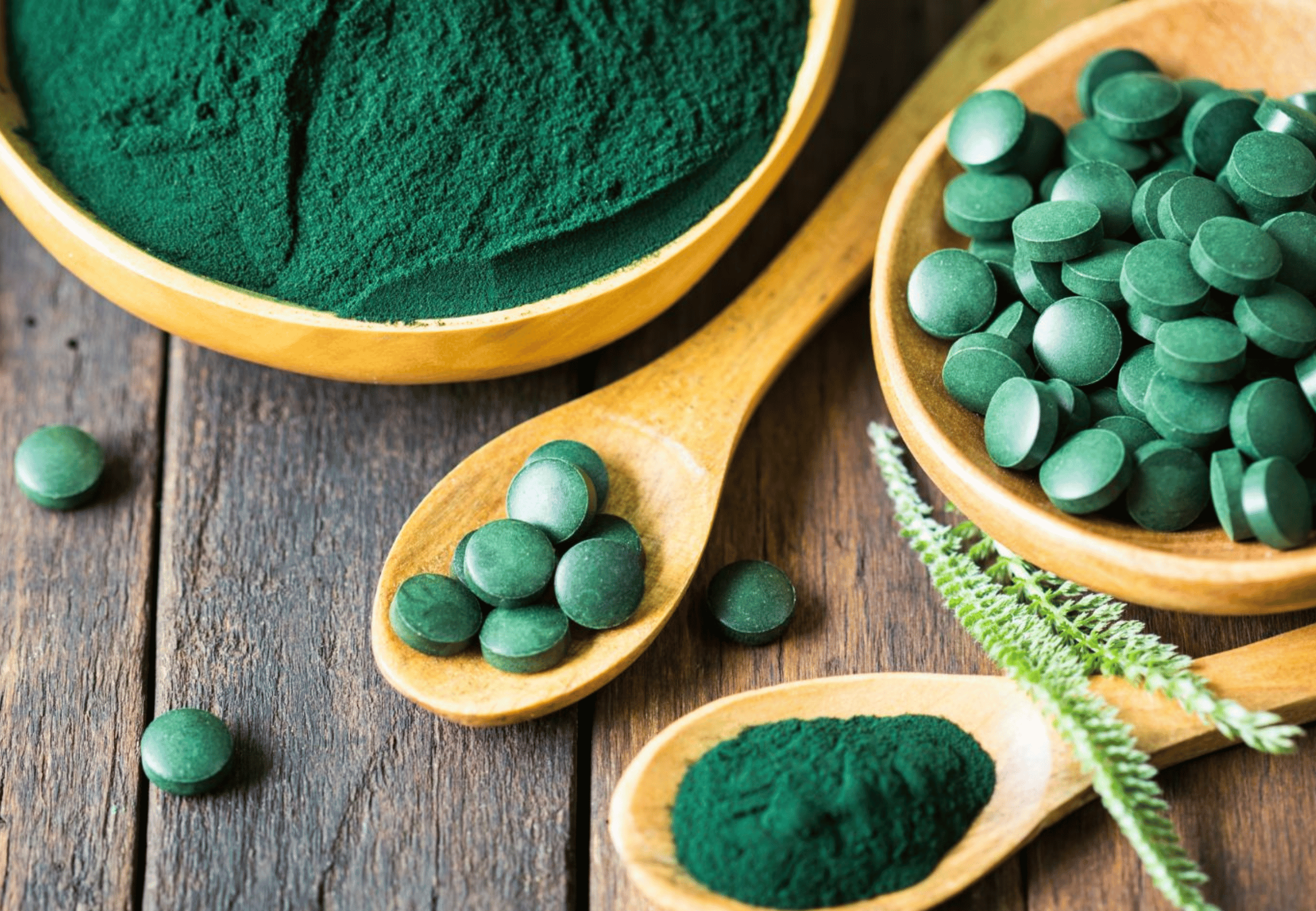Have you ever wondered what astronauts eat when they are in space? Well, one of the foods they eat is spirulina, an algae that has been the subject of numerous scientific studies due to its impressive nutritional content. We invite you to learn more about its origins, its nutritional composition, and its health benefits, which have been studied and recognised by the scientific community.
What is Spirulina and where does it come from?
Spirulina is a microscopic algae that has been part of various cultures' diets for thousands of years, thanks to its rich micronutrient and macronutrient content. It is native to tropical and subtropical alkaline lakes.
|
Did you know…? NASA (National Aeronautics and Space Association) includes spirulina in their astronauts' diets during space missions to the moon [1]. With its rich nutritional composition, good shelf life and ease of including in powdered form into supplements, it is not surprising that NASA considers spirulina to be an ideal food supplement for their astronauts. Its high nutritional content helps them stay fit, energetic, and healthy while they are far from Earth [2]. |
Spirulina's nutritional composition and benefits
This bluish-green algae is known for its rich composition in proteins, essential amino acids, fatty acids, vitamins, and minerals. According to the FAO (Food and Agriculture Organisation of the United Nations) and other studies [3], its nutritional composition is as follows:
|
Components |
Approximate quantity in 100 g (*) |
|
Macronutrients |
|
|
Protein |
57-70 g |
|
Total fats |
5-7 g |
|
Carbohydrates |
15-25 g |
|
Fibre |
3 g |
|
Micronutrients |
|
|
Iron |
26.5 g |
|
Magnesium |
195 mg |
|
Calcium |
120 mg |
|
Potassium |
1363 mg |
|
Phosphorus |
118 mg |
|
Vitamin C |
10.1 mg |
|
Thiamine (Vitamin B1) |
2.38 mg |
|
Riboflavin (Vitamin B2) |
3.67 mg |
|
Niacin (Vitamin B3) |
13.8 mg |
|
Pyridoxine (Vitamin B6) |
0.364 mg |
|
Folic acid (Vitamin B9) |
94 µg |
|
Vitamin B12 |
~ 2 µg |
|
Vitamin E |
5 mg |
|
Vitamin K |
25.5 µg |
|
Zinc |
2 mg |
|
Copper |
0.08 mg |
|
Manganese |
1.9 mg |
|
Selenium |
7.2 µg |
|
Omega-3 |
~ 1 g |
|
Omega-6 |
~ 1 g |
* The specific concentration of each nutrient may vary depending on where it was harvested, the environmental conditions, and the seaweed processing method.
|
Did you know…? Spirulina is particularly rich in iron - and it's not just any iron! The iron found in spirulina is highly bioavailable, which means that our bodies can absorb and use it more easily [4]. To give you an idea of its iron content, spirulina has a higher iron concentration than spinach or dark chocolate. Therefore, spirulina can also be beneficial when treating anaemia [5]. |
Several studies have supported spirulina's potential for brain health, highlighting antioxidant, anti-inflammatory and neuroprotective mechanisms. These studies have also suggested that spirulina may help reduce mental fatigue, protect brain blood vessels, and regulate internal pressure, thereby helping to prevent and/or mitigate cerebrovascular disease [1,2].
For this reason, this algae attracts great interest in the food industry and as an ingredient in the food supplement sector.
Food supplements: Zenement’s Spirulina
Zenement's Spirulina stands out as a 100% natural product. Its organic origin guarantees environmentally friendly manufacturing and, at the same time, a higher nutrient quality. Below is a table summarising the features and benefits associated with Zenement's Spirulina supplement:
|
Features |
Benefits |
|
100% spirulina powder provides quality plant protein |
Prevents fatigue |
|
Provides B vitamins and antioxidants
|
Helps increase muscle mass and helps protect our skin against free radicals |
|
Rich in essential amino acids |
Improves physical performance and endurance |
|
Rich in essential fatty acids (γ-linolenic acid or GLA) |
Promotes healthier skin and hair |
|
Provides minerals |
It allows a proper intestinal transit, supporting digestive system health. |
As you can see, Spirulina is a nutrient-packed algae that can help you feel better and perform at your best on a daily basis. It has even been recognised by prestigious organisations such as NASA. If astronauts rely on it to keep them energised and healthy in space, imagine what it can do for you here on Earth.
[1] Ahmad, A. M. R., Intikhab, A., Zafar, S., Farooq, U., Shah, H. B. U., Akram, S., Abid, J., Parveen, Z., & Iqbal, S. (2023). Spirulina, an FDA-Approved Functional Food: Worth the Hype?. Cellular and molecular biology (Noisy-le-Grand, France), 69(1), 137–144. https://doi.org/10.14715/cmb/2022.69.1.24.
[2] Maddiboyina, B., Vanamamalai, H. K., Roy, H., Ramaiah, Gandhi, S., Kavisri, M., & Moovendhan, M. (2023). Food and drug industry applications of microalgae Spirulina platensis: A review. Journal of basic microbiology, 63(6), 573–583. https://doi.org/10.1002/jobm.202200704.
[3] Food and Agriculture Organization of the United Nations (fao.org). https://www.fao.org/common-pages/search/es/?q=spirulina.
[4] Isani, G., Ferlizza, E., Bertocchi, M., Dalmonte, T., Menotta, S., Fedrizzi, G., & Andreani, G. (2022). Iron Content, Iron Speciation and Phycocyanin in Commercial Samples of Arthrospira spp. International journal of molecular sciences, 23(22), 13949. https://doi.org/10.3390/ijms232213949.
[5] Gogna, S., Kaur, J., Sharma, K., Prasad, R., Singh, J., Bhadariya, V., Kumar, P., & Jarial, S. (2023). Spirulina- An Edible Cyanobacterium with Potential Therapeutic Health Benefits and Toxicological Consequences. Journal of the American Nutrition Association, 42(6), 559–572. https://doi.org/10.1080/27697061.2022.2103852.

